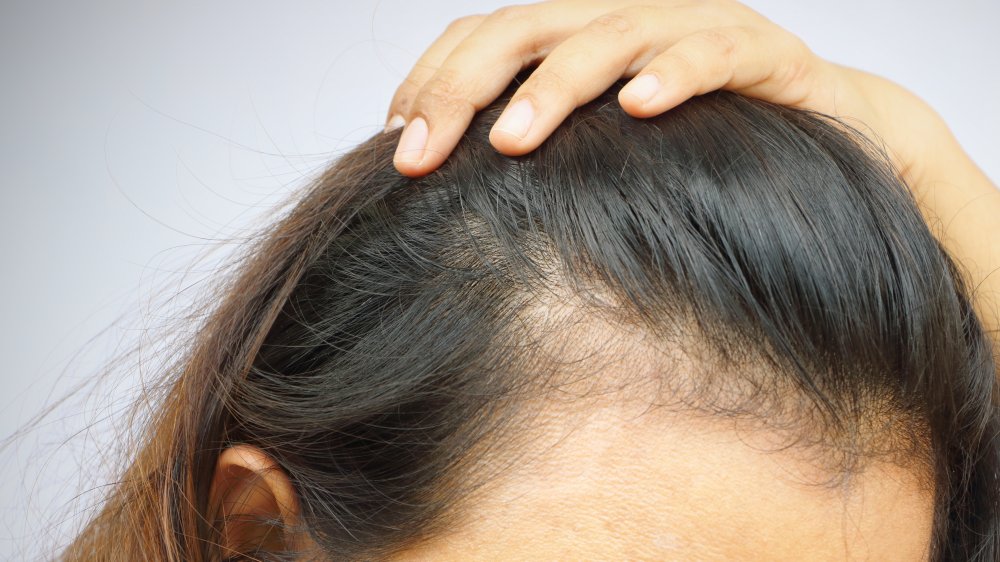Why The Keto Diet Could Make Your Hair Fall Out
There's a not-so-secret reason low-carb diets have been wildly popular for the last few decades: they often work. Many people have used some form of a low-carb diet to successfully lose weight. But while no one would bat an eye at cutting back a little on bread and pasta, the health benefits of very restrictive diets — like the ketogenic diet (or keto for short) — are debatable.
The keto diet is named after the metabolic state called ketosis, which occurs when the body, instead of relying on glucose from carbohydrates for energy, shifts gears and burns fat instead (via Healthline).
The keto diet is a very low-carb, high fat, moderate protein diet which was originally developed for medical purposes as a tool to treat neurological diseases such as epilepsy. Research shows it may also help a variety of other health conditions as well, like diabetes, cancer, and Alzheimer's, according to Healthline. And, of course, it's generally a very effective way to achieve weight loss.
Sounds great, right? Sure, except that for many, the keto diet can also lead to a laundry list of negative side effects, like fatigue, constipation, nausea, and... hair loss? Yes. For some people, keto hair loss is a very real (and very concerning) side-effect.
Nutrient deficiencies may contribute to hair loss
Experts speculate on the cause of keto hair loss, but stress on the body from the radical change in food intake and rapid weight loss may be a factor. Erin Palinski-Wade, RD, author of 2 Day Diabetes Diet, tells Women's Health, "Severe calorie restriction can cause the body to conserve energy and spend less energy on hair growth, which can result in shedding of hair and slowed or halted new hair growth."
Another factor that may contribute to keto hair loss is nutrient deficiency. The diet is so restrictive that it's easy to neglect getting some key nutrients. Kathy McManus, RD, director of the Department of Nutrition at Harvard-affiliated Brigham and Women's Hospital, warns (via Harvard Health Publishing), "If you're not eating a wide variety of vegetables, fruits, and grains, you may be at risk for deficiencies in micronutrients, including selenium, magnesium, phosphorus, and vitamins B and C."
"Keto diets should only be used under clinical supervision and only for brief periods," said Francine Blinten, RD, a certified clinical nutritionist and public health consultant in Old Greenwich, Connecticut (via Healthline). "It can do more harm than good."


